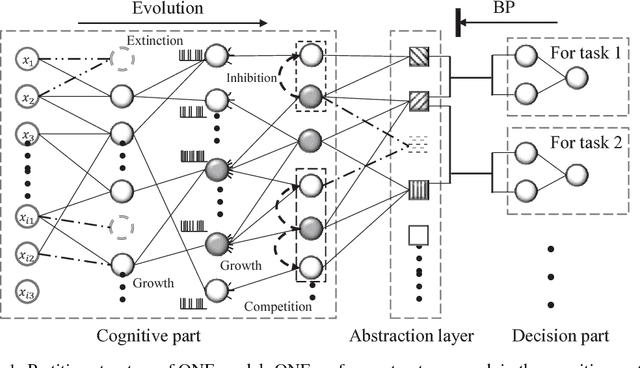Abstraction Learning
Paper and Code
Sep 11, 2018



There has been a gap between artificial intelligence and human intelligence. In this paper, we identify three key elements forming human intelligence, and suggest that abstraction learning combines these elements and is thus a way to bridge the gap. Prior researches in artificial intelligence either specify abstraction by human experts, or take abstraction as a qualitative explanation for the model. This paper aims to learn abstraction directly. We tackle three main challenges: representation, objective function, and learning algorithm. Specifically, we propose a partition structure that contains pre-allocated abstraction neurons; we formulate abstraction learning as a constrained optimization problem, which integrates abstraction properties; we develop a network evolution algorithm to solve this problem. This complete framework is named ONE (Optimization via Network Evolution). In our experiments on MNIST, ONE shows elementary human-like intelligence, including low energy consumption, knowledge sharing, and lifelong learning.
 Add to Chrome
Add to Chrome Add to Firefox
Add to Firefox Add to Edge
Add to Edge